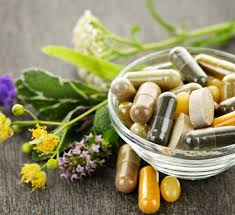 Magnesium is vital for all muscle contraction and we often have inadequate dietary magnesium. A good quality supplement is likely to reduce muscle aches and pains and eradicate muscle cramps.
Magnesium is vital for all muscle contraction and we often have inadequate dietary magnesium. A good quality supplement is likely to reduce muscle aches and pains and eradicate muscle cramps.
Selenium is an excellent antioxidant, which reduces the rate of cellular damage, its benefits magnified when taken consistently over time.
Zinc is particularly important for hair and nail health, optimising the immune system and building neurotransmitters. Ordinary diets rarely lead to optimal zinc, though doctors can check these levels in a blood test.
B group vitamins are a much utilised supplement since most cellular reactions require B vitamins. It is important to check a patient’s MTHFR status – this is a test for a gene defect in the methylating enzyme because this will inform the choice of B vitamins to use. The MTHFR test can be ordered by a G.P.
Vitamin C is one of the most useful nutrients for the body. It has anti-oxidant, anti-inflammatory and immune activating properties. Although most people eat enough Vitamin C rich foods to avoid disease states, such as scurvy, almost no-one eats optimal levels of this vitamin. Supplements will certainly boost the immune system, and over time, reduce oxidative damage to cells.
 Vitamin D has an amazing number of functions in our body, from maintaining bone and muscle strength, to improving thyroid function and reducing cancer and cardiovascular risk. Vitamin D is really a hormone that is obtained through U.V exposure, but of course from an evolutionary perspective, we were intended to be outside naked all day every day – our modern lifestyles are nowhere near this! Even if we were free to spend so much time outside, damage to the ozone makes this U.V exposure dangerous because of skin cancer; therefore we all need supplementation. Doctors often tell patients that levels over 50 are satisfactory, but actually levels need to be well over 100 and as close as possible to 150 are required to optimise the various functions of this ‘vitamin’.
Vitamin D has an amazing number of functions in our body, from maintaining bone and muscle strength, to improving thyroid function and reducing cancer and cardiovascular risk. Vitamin D is really a hormone that is obtained through U.V exposure, but of course from an evolutionary perspective, we were intended to be outside naked all day every day – our modern lifestyles are nowhere near this! Even if we were free to spend so much time outside, damage to the ozone makes this U.V exposure dangerous because of skin cancer; therefore we all need supplementation. Doctors often tell patients that levels over 50 are satisfactory, but actually levels need to be well over 100 and as close as possible to 150 are required to optimise the various functions of this ‘vitamin’.
CoQ10 is an antioxidant which is vital for people taking lipid lowering drugs called statins, since it mitigates against the cellular damage produced by this very popular group of drugs It is beneficial for all of us however because of its capacity to improve mitochondrial energy production. I prescribe it to many patients who have inflammatory conditions and cancer.
